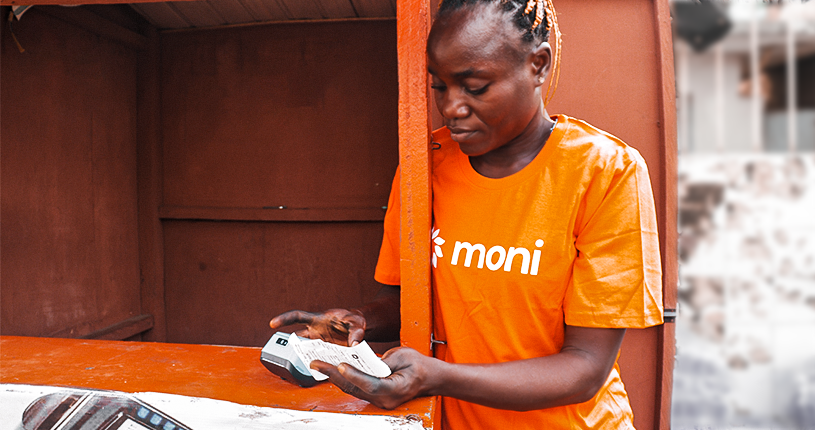Over the past few years, the agency banking industry in Nigeria has grown by leaps and bounds, driven by a group of fintech players—including OPay, TeamApt, and Paga—that dominate the landscape as well as commercial banks. The latter boasts extensive agent networks for last-mile delivery of financial services, especially in areas where it makes little economic sense to set up branches.
Agency banking is a branch of mobile payments and a major enabler in Nigeria has been the central bank-led Shared Agent Network Expansion Facilities (SANEF) initiative, which makes it relatively easy to become an agent. Essentially, anyone with a shop can serve as an agent for a bank or a mobile payments company. Today, at least 60% of Nigerian agent outlets double as retail stores and informal traders with a POS device in their possession.
With more than 230,000 agents in Nigeria, as of 2019, the growing network is a crucial distribution channel for financial services while providing a means of livelihood for the agents themselves. But to operate profitably, constant access to working capital is required almost every time. However, most agents do not have such liquidity and end up accruing 20–30% in expense to rebalance and manage liquidity.
Femi Iromini, a former World Bank consultant, first learned about this problem in early 2020, through a family friend who’d started a mobile money business, which he invested in, and noticed was always in need of cash. “After two to three months of launch, the business had expanded but there was always that demand for cash to meet transaction targets,” Iromini said in an interview.
Following a conversation in November 2020 with a cluster of mobile money agents in the Shapati community in Lekki-Ajah, Lagos, one thing was clear to Iromini: liquidity is a major challenge plaguing the mobile money ecosystem. He then teamed up with Dapo Sobayo, who has experience in transforming legacy systems to digital from co-building businesses like Zedvance and SEL Capital, to launch Moni—a float-as-a-service startup that offers low-interest loans to communities of mobile money agents through a referral and trust vetting system—last year.
“When we met them, the pain was there. Several complaints of long queues at banks,” Iromini told TechCabal. “If you start a mobile money business with ₦200,000, you might need to visit the bank almost daily because you’ll run out of cash.” This can be daunting in areas where bank branches are scarce and agency banking is needed the most. Agents face a significant risk of theft and long queues while journeying to rebalance their accounts and might lose the customers’ trust when they frequently turn down cash requests.
99.9% repayment rate…so far
Across Africa, many startups are solving the float problem for small businesses in one form or another. What makes Moni Africa unique is that while its peers rely on databases of local credit bureaus to give out loans (and record alarming default rates of at least 30%), the startup operates a community lending system it claims has helped achieve a 99.9% repayment rate.
Under this system, Iromini explains that groups of lenders, usually women and traders, have communal relations, share joint responsibility for loans collectively taken, and make sure one another doesn’t default to ensure the sustainability of the line of credit.
Moni was built on this fundamental socioeconomic behavior, that emerging markets are naturally community-based, as against lending based on statements of accounts or credit ratings, which most underbanked agents don’t have. The startup instead leverages an algorithm developed around social trust and social underwriting that’s seen the platform achieve a highly impressive repayment rate.
“Social intelligence is something you can’t get from statements of accounts so we are able to combine that offline intel with our online intel. We’ve had a case where an agent wanted to use the loan obtained for a wedding but through social intelligence, we were able to stop it,” Sobayo, who serves as the startup’s Chief Technology Officer (CTO), said.
The social underwriting model by Moni operates alongside a referral plan through which agents are continuously compensated on every loan repaid by every agent they refer. This gives them a sense of extra caution with referrals as not only is their commission at stake if the agent defaults, they might also not be able to access loans subsequently.
“In our agent referral plan, we don’t do automatic or express selection. Our algorithm selects 1% of 1% who are trustworthy. Once invited to the platform, we give you a business performance test and we have a simple benchmark of what your numbers should be like if you’ve been doing business for a certain number of years,” the CTO added.

Starting out, Moni disbursed over 1,000 loans using WhatsApp and Google form before eventually building out the mobile platform that fulfils agent credit requests in less than 5 minutes.
In less than a year since it launched, Moni has spread across all states in Nigeria and has also expanded to Benin Republic and Guinea. The platform has been able to disburse over $5 million (₦2 billion) through 10,000 loans to thousands of agents, with a team strength of 12-13 members; 60% of which are focused on engineering.
Moni Africa claims its revenue has grown 50% month-on-month so far and most of its agents, about 70% of which are women, have grown their businesses by 3x. “Most agents on the Moni network start with an average working capital of ₦100,000 but grow to like ₦700,000 or ₦1 million,” Iromini said.
Its 0.1% default rate, according to the CEO, can be attributed to the platform’s community-based model and interest rate which supports the unit economics of a mobile money agent.
“We’re building a quality network of agents that love our product and have built that social trust with our brand so we can distribute other products like savings, commerce, payments, etc. through them because trust is a currency you spend,” he said.
Moni Africa recently got admitted into YCombinator and has closed a pre-seed round from leading investors such as MAGIC Fund, Voltron Capital, Ventures Platform, ex-Managing Partner of Softbank’s Latin America fund, Murtaza Ahmed, Ventures Kinetics, Aidi Ventures, Kola Aina, among others. In the long run, the startup plans to expand its community-finance model beyond mobile money agents to different SMEs across Africa.
“MAGIC is delighted to back Moni as they solve a major pain point of agent banking networks, across Africa — liquidity. The infusion of social trust into Moni’s products is unique and we’re confident that the team will build an economic infrastructure that would impact underserved sectors across Africa,” said Temi Awogboro, the Fund’s General Partner, Africa.
If you enjoyed reading this article, please share it in your WhatsApp groups and Telegram channels.





















